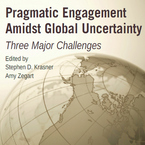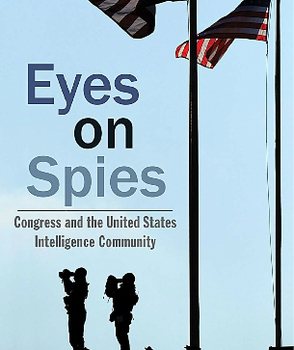Amy Zegart
Amy Zegart is the Davies Family Senior Fellow at the Hoover Institution, a professor of political science (by courtesy) at Stanford University, and co-director of Stanford’s Center for International Security and Cooperation. Until 2011, she served as professor of public policy at UCLA’s Luskin School of Public Affairs.
Zegart’s research examines the organizational challenges of American national security agencies. Her most recent publication is Eyes on Spies: Congress and the United States Intelligence Community (Hoover Institution Press, 2011). She is also the author of two award-winning books: Flawed by Design, which chronicles the development of the Central Intelligence Agency, Joint Chiefs of Staff, and National Security Council, won the highest dissertation award in political science; and Spying Blind, which examines why American intelligence agencies failed to adapt to the terrorist threat before 9/11, won the National Academy of Public Administration’s Brownlow Book Award. She has also published in International Security, Political Science Quarterly, and other leading academic journals. She serves on the editorial boards of Terrorism and Political Violence and Intelligence and National Security.
Zegart was featured by the National Journal as one of the ten most influential experts in intelligence reform. She served on the Clinton administration's National Security Council staff and as a foreign policy adviser to the Bush-Cheney 2000 presidential campaign. She has testified before the Senate Intelligence Committee, provided training to the US Marine Corps, and advised officials on intelligence and homeland security matters. From 2009 to 2011 she served on the National Academies of Science Panel to Improve Intelligence Analysis. Her commentary has been featured on national television and radio shows and in the New York Times, Washington Post, and Los Angeles Times.
A former Fulbright scholar, Zegart received an AB in East Asian studies magna cum laude from Harvard University and an MA and PhD in political science from Stanford University. She serves on the FBI Intelligence Analysts Association National Advisory Board, the Los Angeles Police Department’s Counter-terrorism and Community Police Advisory Board, the Secretary of Energy Advisory Board Task Force on Nuclear Nonproliferation, the Kratos Defense and Security Solutions board, and is a lifetime member of the Council on Foreign Relations.













